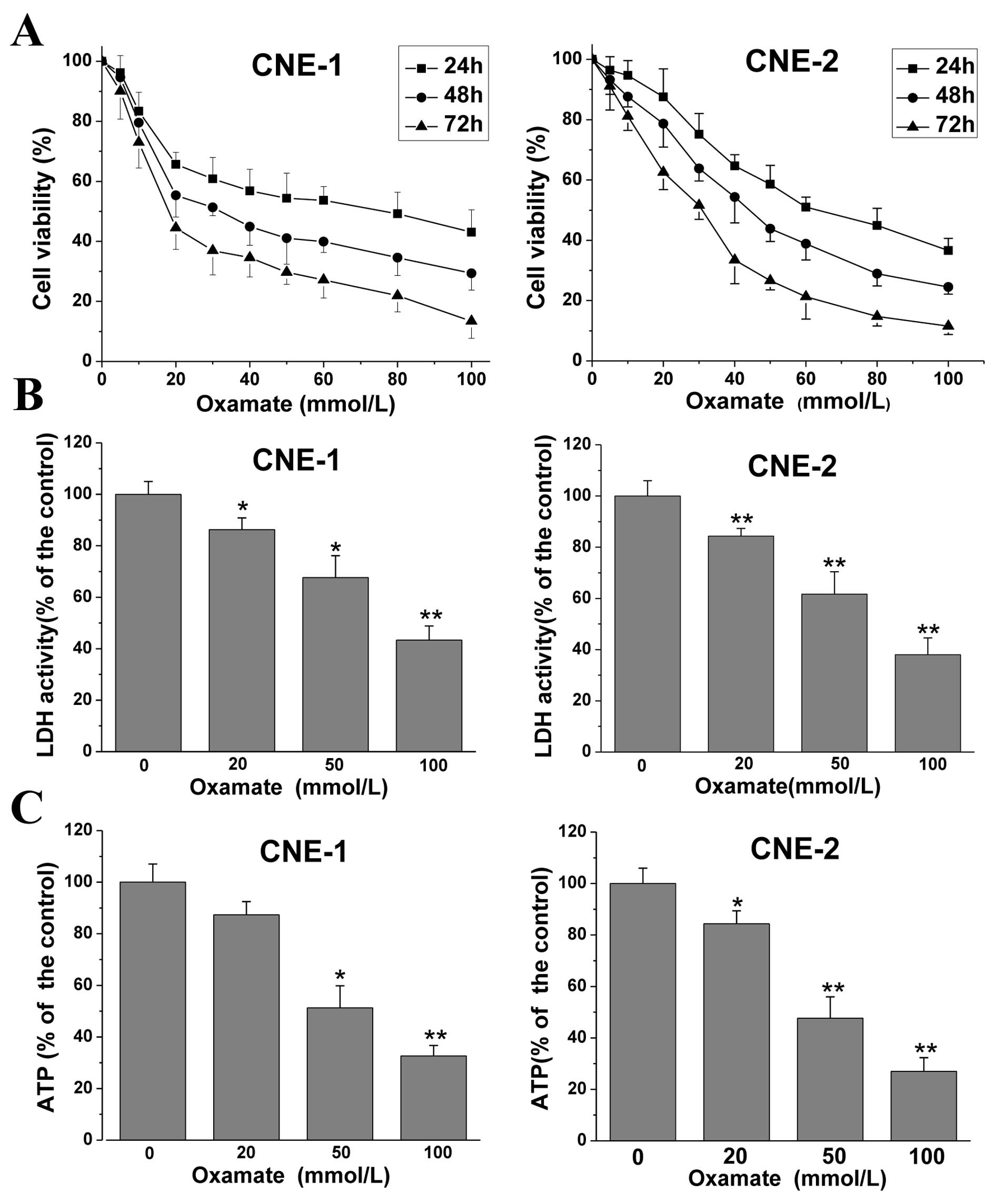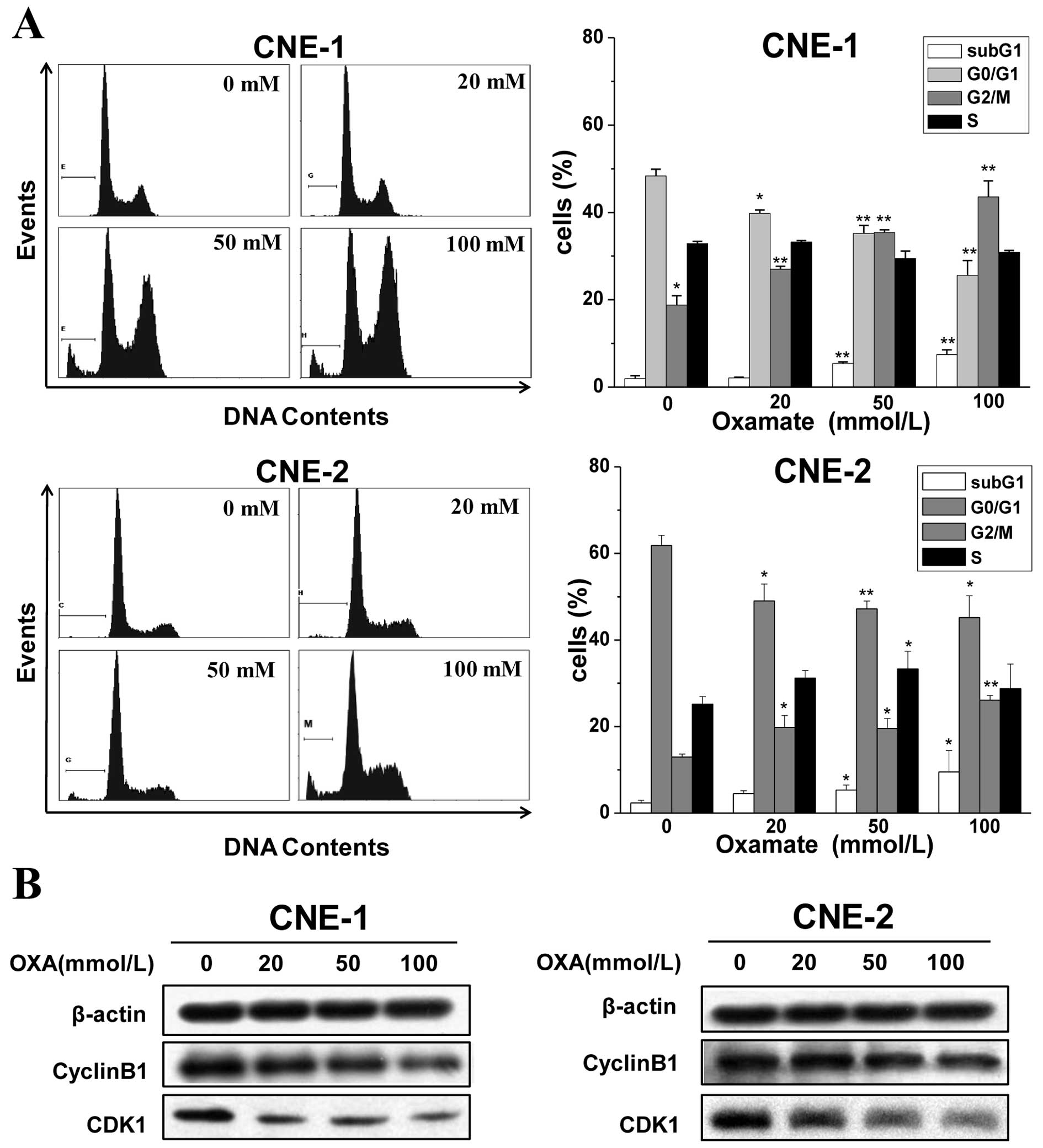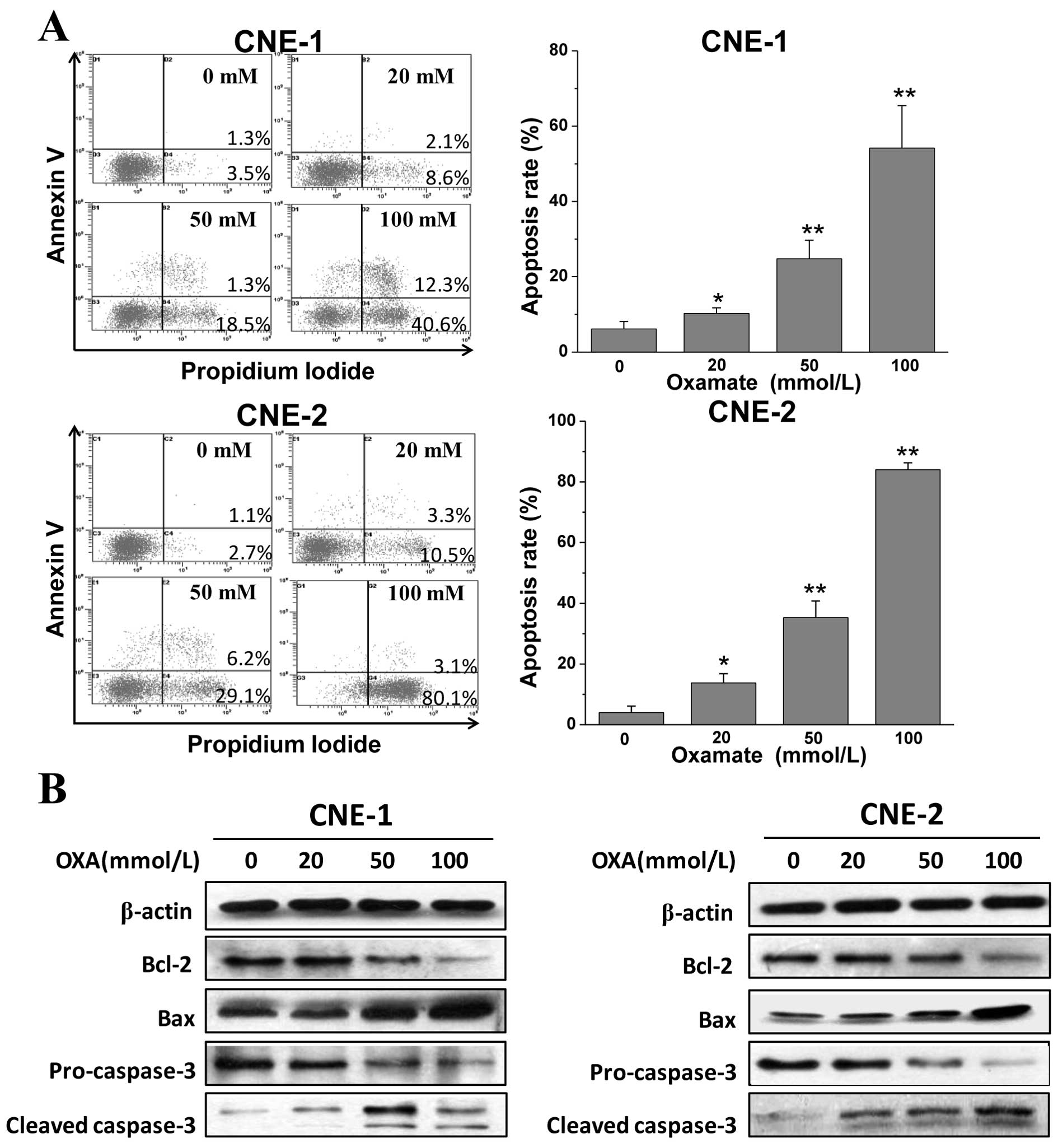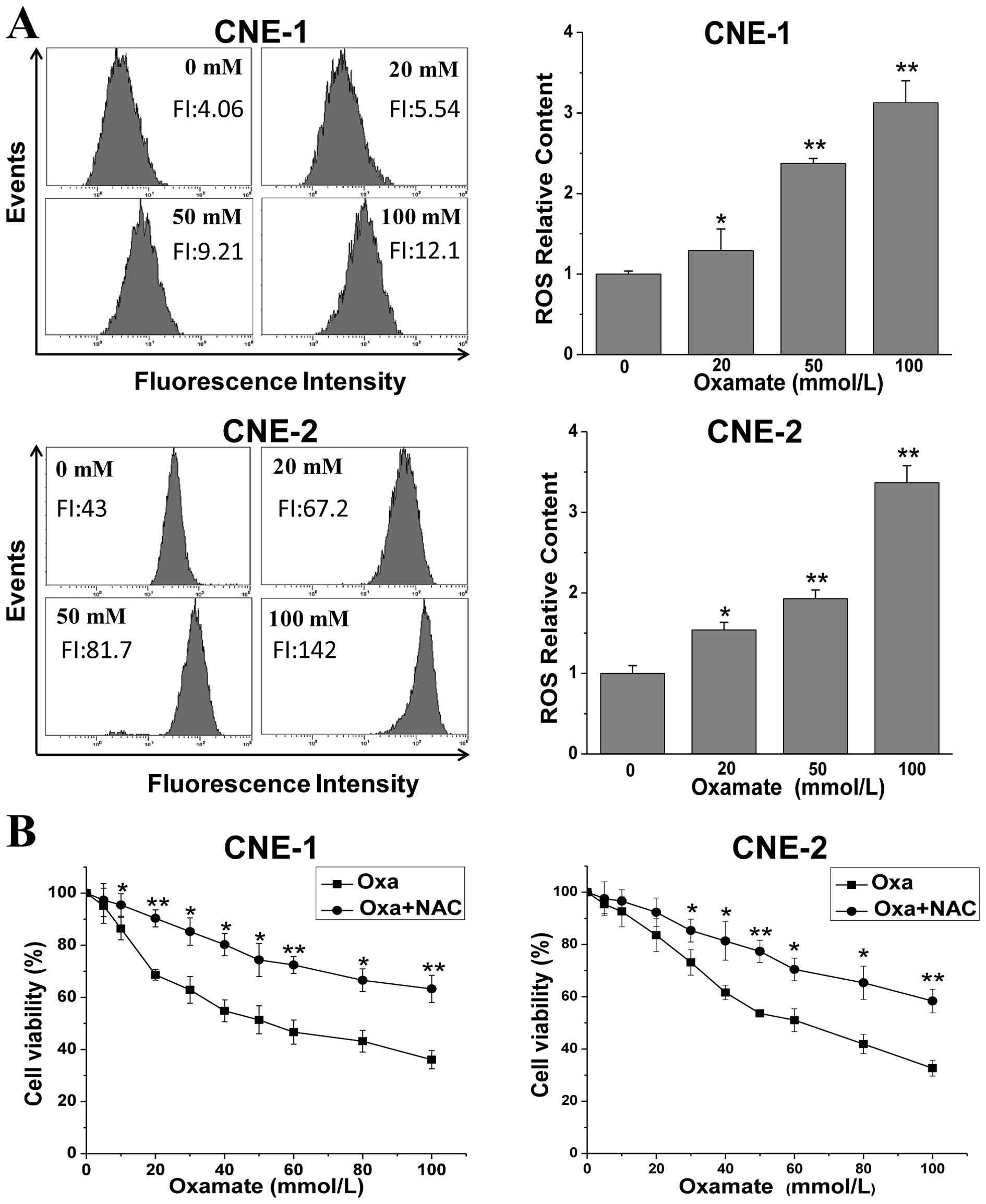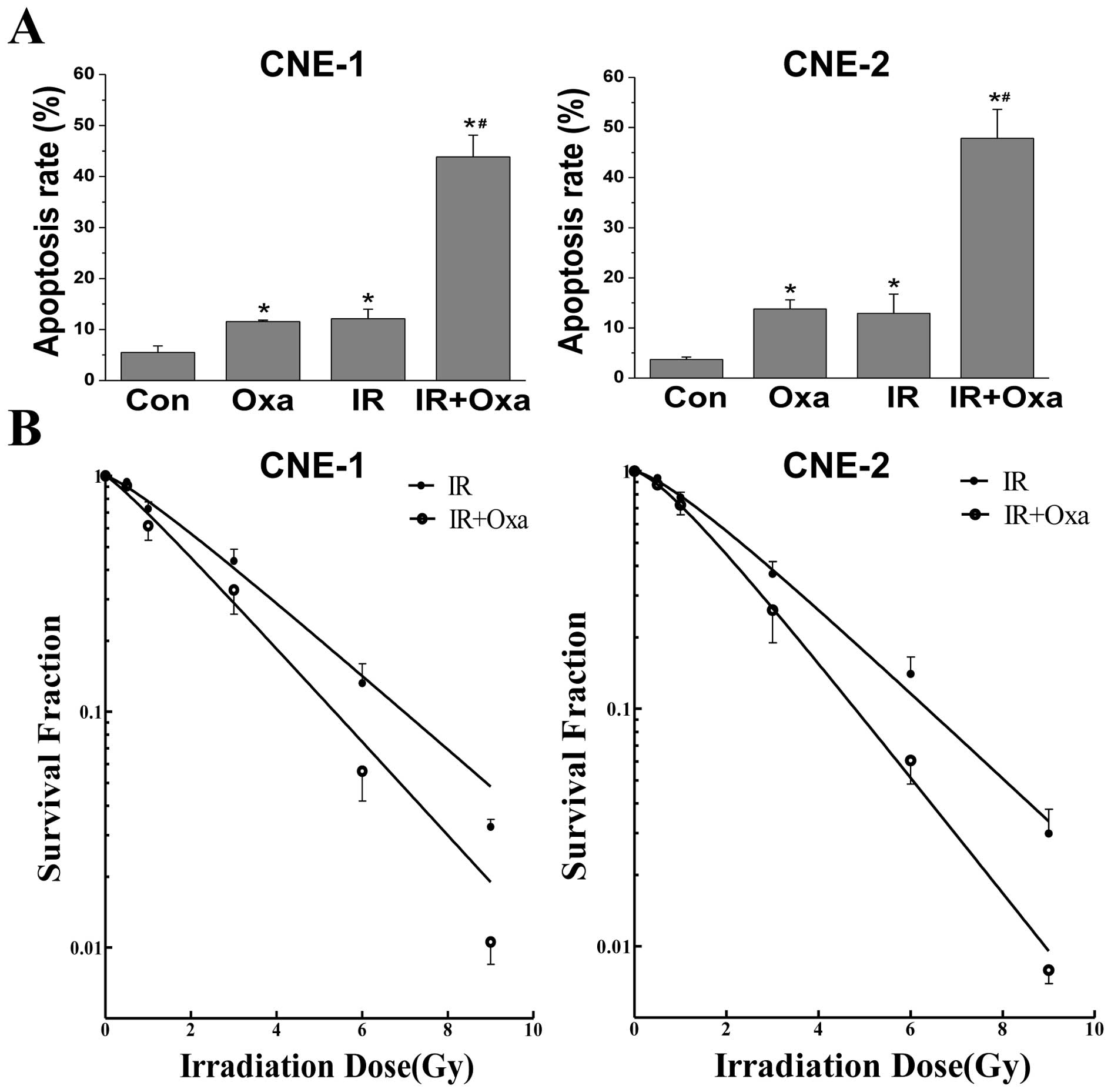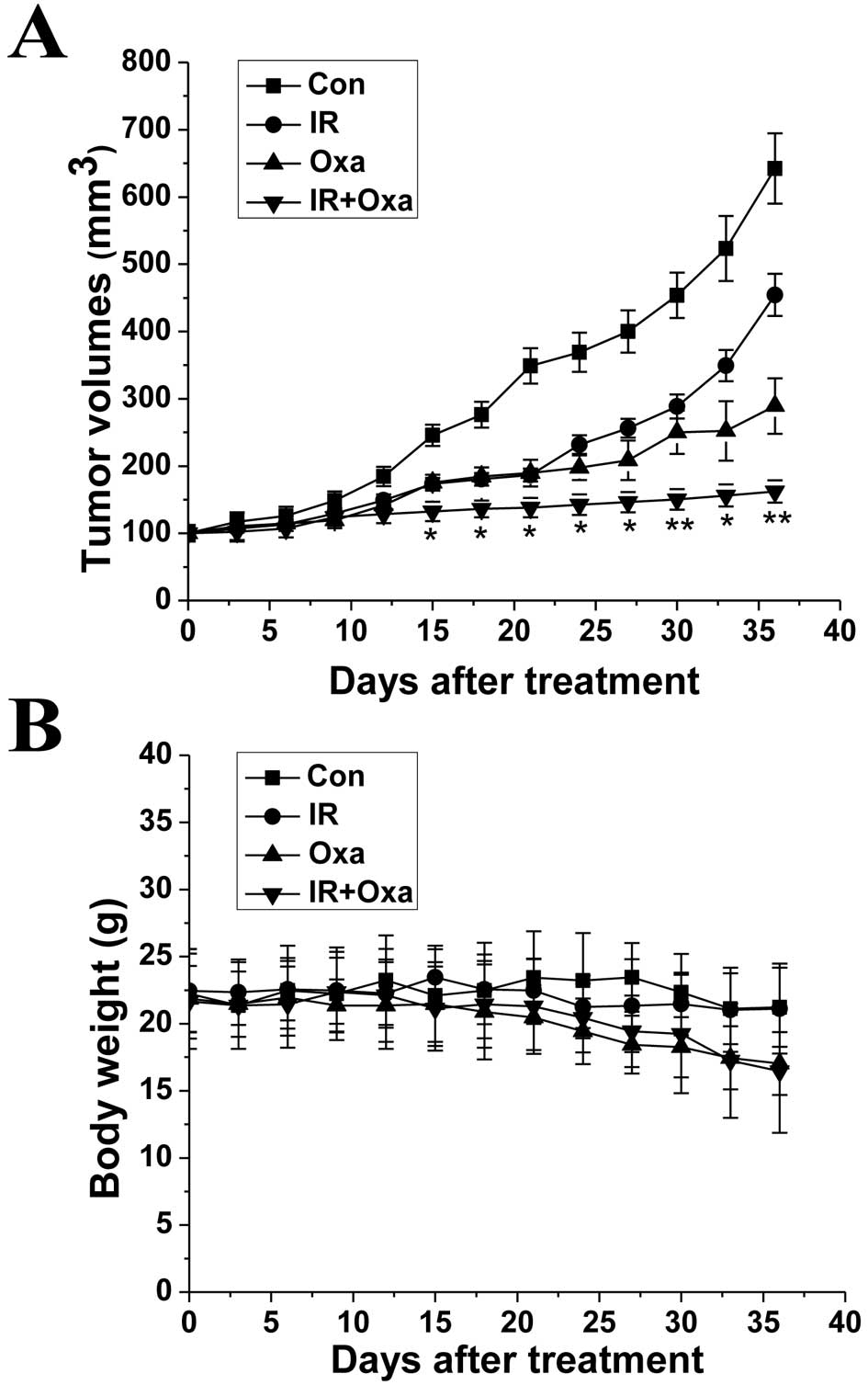|
1
|
Wei WI and Sham JS: Nasopharyngeal
carcinoma. Lancet. 365:2041–2054. 2005. View Article : Google Scholar : PubMed/NCBI
|
|
2
|
Guigay J: Advances in nasopharyngeal
carcinoma. Curr Opin Oncol. 20:264–269. 2008. View Article : Google Scholar : PubMed/NCBI
|
|
3
|
Xie P, Yue JB, Fu Z, Feng R and Yu JM:
Prognostic value of 18F-FDG PET/CT before and after
radiotherapy for locally advanced nasopharyngeal carcinoma. Ann
Oncol. 21:1078–1082. 2010.
|
|
4
|
Chan SC, Chang JT, Wang HM, et al:
Prediction for distant failure in patients with stage M0
nasopharyngeal carcinoma: the role of standardized uptake value.
Oral Oncol. 45:52–58. 2009. View Article : Google Scholar : PubMed/NCBI
|
|
5
|
Pelicano H, Martin DS, Xu RH and Huang P:
Glycolysis inhibition for anticancer treatment. Oncogene.
25:4633–4646. 2006. View Article : Google Scholar : PubMed/NCBI
|
|
6
|
Goldman RD, Kaplan NO and Hall TC: Lactic
dehydrogenase in human neoplastic tissues. Cancer Res. 24:389–399.
1964.PubMed/NCBI
|
|
7
|
Fantin VR, St-Pierre J and Leder P:
Attenuation of LDH-A expression uncovers a link between glycolysis,
mitochondrial physiology, and tumor maintenance. Cancer Cell.
9:425–434. 2006. View Article : Google Scholar
|
|
8
|
Zhao YH, Zhou M, Liu H, et al:
Upregulation of lactate dehydrogenase A by ErbB2 through heat shock
factor 1 promotes breast cancer cell glycolysis and growth.
Oncogene. 28:3689–3701. 2009. View Article : Google Scholar : PubMed/NCBI
|
|
9
|
Le A, Cooper CR, Gouw AM, et al:
Inhibition of lactate dehydrogenase A induces oxidative stress and
inhibits tumor progression. Proc Natl Acad Sci USA. 107:2037–2042.
2010.PubMed/NCBI
|
|
10
|
Serganova I, Rizwan A, Ni XH, et al:
Metabolic imaging: a link between lactate dehydrogenase A, lactate,
and tumor phenotype. Clin Cancer Res. 17:6250–6261. 2011.
View Article : Google Scholar : PubMed/NCBI
|
|
11
|
Wang ZY, Loo TY, Shen JG, et al: LDH-A
silencing suppresses breast cancer tumorigenicity through induction
of oxidative stress mediated mitochondrial pathway apoptosis.
Breast Cancer Res Treat. 131:791–800. 2012. View Article : Google Scholar
|
|
12
|
Xie H, Valera VA, Merino MJ, et al: LDH-A
inhibition, a therapeutic strategy for treatment of hereditary
leiomyomatosis and renal cell cancer. Mol Cancer Ther. 8:626–635.
2009. View Article : Google Scholar : PubMed/NCBI
|
|
13
|
Sheng SL, Liu JJ, Dai YH, Sun XG, Xiong XP
and Huang G: Knockdown of lactate dehydrogenase A suppresses tumor
growth and metastasis of human hepatocellular carcinoma. FEBS J.
279:3898–3910. 2012. View Article : Google Scholar : PubMed/NCBI
|
|
14
|
Koukourakis MI, Giatromanolaki A, Winter
S, Leek R, Sivridis E and Harris AL: Lactate dehydrogenase 5
expression in squamous cell head and neck cancer relates to
prognosis following radical or postoperative radiotherapy.
Oncology. 77:285–292. 2009. View Article : Google Scholar
|
|
15
|
Zhou GQ, Tang LL, Mao YP, et al: Baseline
serum lactate dehydrogenase levels for patients treated with
intensity-modulated radiotherapy for nasopharyngeal carcinoma: a
predictor of poor prognosis and subsequent liver metastasis. Int J
Radiat Oncol Biol Phys. 82:e359–e365. 2012. View Article : Google Scholar
|
|
16
|
Wan XB, Wei L, Li H, et al: High
pretreatment serum lactate dehydrogenase level correlates with
disease relapse and predicts an inferior outcome in locally
advanced nasopharyngeal carcinoma. Eur J Cancer. 9:2356–2364. 2013.
View Article : Google Scholar
|
|
17
|
Papaconstantinou J and Colowick SP: The
role of glycolysis in the growth of tumor cells. II. The effect of
oxamic acid on the growth of HeLa cells in tissue culture. J Biol
Chem. 236:285–288. 1961.PubMed/NCBI
|
|
18
|
Thornburg JM, Nelson KK, Clem BF, et al:
Targeting aspartate aminotransferase in breast cancer. Breast
Cancer Res. 10:R842008. View
Article : Google Scholar : PubMed/NCBI
|
|
19
|
Fiume L, Manerba M, Vettraino M and Di
Stefano G: Impairment of aerobic glycolysis by inhibitors of lactic
dehydrogenase hinders the growth of human hepatocellular carcinoma
cell lines. Pharmacology. 86:157–162. 2010. View Article : Google Scholar : PubMed/NCBI
|
|
20
|
Zhou M, Zhao YH, Ding Y, et al: Warburg
effect in chemosensitivity: targeting lactate dehydrogenase-A
re-sensitizes Taxol-resistant cancer cells to Taxol. Mol Cancer.
9:332010. View Article : Google Scholar : PubMed/NCBI
|
|
21
|
Fiume L, Vettraino M, Manerba M and Di
Stefano G: Inhibition of lactic dehydrogenase as a way to increase
the anti-proliferative effect of multi-targeted kinase inhibitors.
Pharmacol Res. 63:328–334. 2011. View Article : Google Scholar : PubMed/NCBI
|
|
22
|
Zhao YH, Liu H, Liu ZX, et al: Overcoming
trastuzumab resistance in breast cancer by targeting dysregulated
glucose metabolism. Cancer Res. 71:4585–4597. 2011. View Article : Google Scholar : PubMed/NCBI
|
|
23
|
Shapiro GI and Harper JW: Anticancer drug
targets: cell cycle and checkpoint control. J Clin Invest.
104:1645–1653. 1999. View
Article : Google Scholar : PubMed/NCBI
|
|
24
|
Simon HU, Haj-Yehia A and Levi-Schaffer F:
Role of reactive oxygen species (ROS) in apoptosis induction.
Apoptosis. 5:415–418. 2000.PubMed/NCBI
|
|
25
|
Modica-Napolitano JS and Singh KK:
Mitochondrial dysfunction in cancer. Mitochondrion. 4:755–762.
2004.
|
|
26
|
Pelicano H, Lu W, Zhou Y, et al:
Mitochondrial dysfunction and reactive oxygen species imbalance
promote breast cancer cell motility through a CXCL14-mediated
mechanism. Cancer Res. 69:2375–2383. 2009. View Article : Google Scholar
|
|
27
|
Hung WY, Huang KH, Wu CW, et al:
Mitochondrial dysfunction promotes cell migration via reactive
oxygen species-enhanced β5-integrin expression in human gastric
cancer SC-M1 cells. Biochim Biophys Acta. 1820:1102–1110.
2012.PubMed/NCBI
|
|
28
|
Lindqvist A, van Zon W, Karlsson Rosenthal
C and Wolthuis RM: Cyclin B1-Cdk1 activation continues after
centrosome separation to control mitotic progression. PLoS Biol.
5:e1232007. View Article : Google Scholar : PubMed/NCBI
|
|
29
|
Madhok BM, Yeluri S, Perry SL, Hughes TA
and Jayne DG: Dichloroacetate induces apoptosis and cell-cycle
arrest in colorectal cancer cells. Br J Cancer. 102:1746–1752.
2010. View Article : Google Scholar : PubMed/NCBI
|
|
30
|
Leach JK, Van Tuyle G, Lin PS,
Schmidt-Ullrich R and Mikkelsen RB: Ionizing radiation-induced,
mitochondria-dependent generation of reactive oxygen/nitrogen.
Cancer Res. 61:3894–3901. 2001.PubMed/NCBI
|
|
31
|
Tominaga H, Kodama S, Matsuda N, Suzuki K
and Watanabe M: Involvement of reactive oxygen species (ROS) in the
induction of genetic instability by radiation. J Radiat Res.
45:181–188. 2004. View Article : Google Scholar : PubMed/NCBI
|
|
32
|
Diehn M, Cho RW, Lobo NA, et al:
Association of reactive oxygen species levels and radioresistance
in cancer stem cells. Nature. 458:780–783. 2009. View Article : Google Scholar : PubMed/NCBI
|
|
33
|
Cao WG, Yacoub S, Shiverick KT, et al:
Dichloroacetate (DCA) sensitizes both wild-type and overexpressing
Bcl-2 prostate cancer cells in vitro to radiation. Prostate.
68:1223–1231. 2008. View Article : Google Scholar : PubMed/NCBI
|
|
34
|
Sharma PK, Bhardwaj R, Dwarakanath BS and
Varshney R: Metabolic oxidative stress induced by a combination of
2-DG and 6-AN enhances radiation damage selectively in malignant
cells via non-coordinated expression of antioxidant enzymes. Cancer
Lett. 295:154–166. 2010. View Article : Google Scholar
|
|
35
|
Sandulache VC, Skinner HD, Wang Y, et al:
Glycolytic inhibition alters anaplastic thyroid carcinoma tumor
metabolism and improves response to conventional chemotherapy and
radiation. Mol Cancer Ther. 11:1373–1380. 2012. View Article : Google Scholar
|
|
36
|
Goldberg EB and Colowick SP: The role of
glycolysis in the growth of tumor cells. 3. Lactic dehydrogenase as
the site of action of oxamate on the growth of cultured cells. J
Biol Chem. 240:2786–2790. 1965.PubMed/NCBI
|
|
37
|
Elwood JC: Effect of oxamate on glycolysis
and respiration in sarcoma 37 ascites cells. Cancer Res.
28:2056–2060. 1968.PubMed/NCBI
|
|
38
|
Granchi C, Bertini S, Macchia M and
Minutolo F: Inhibitors of lactate dehydrogenase isoforms and their
therapeutic potentials. Curr Med Chem. 17:672–697. 2010. View Article : Google Scholar : PubMed/NCBI
|
|
39
|
Granchi C, Roy S, Giacomelli C, et al:
Discovery of N-hydroxyindole-based inhibitors of human lactate
dehydrogenase isoform A (LDH-A) as starvation agents against cancer
cells. J Med Chem. 54:1599–1612. 2011. View Article : Google Scholar
|
|
40
|
Wang Z, Wang N, Chen J and Shen J:
Emerging glycolysis targeting and drug discovery from Chinese
medicine in cancer therapy. Evid Based Complement Alternat Med.
2012:8731752012.PubMed/NCBI
|















